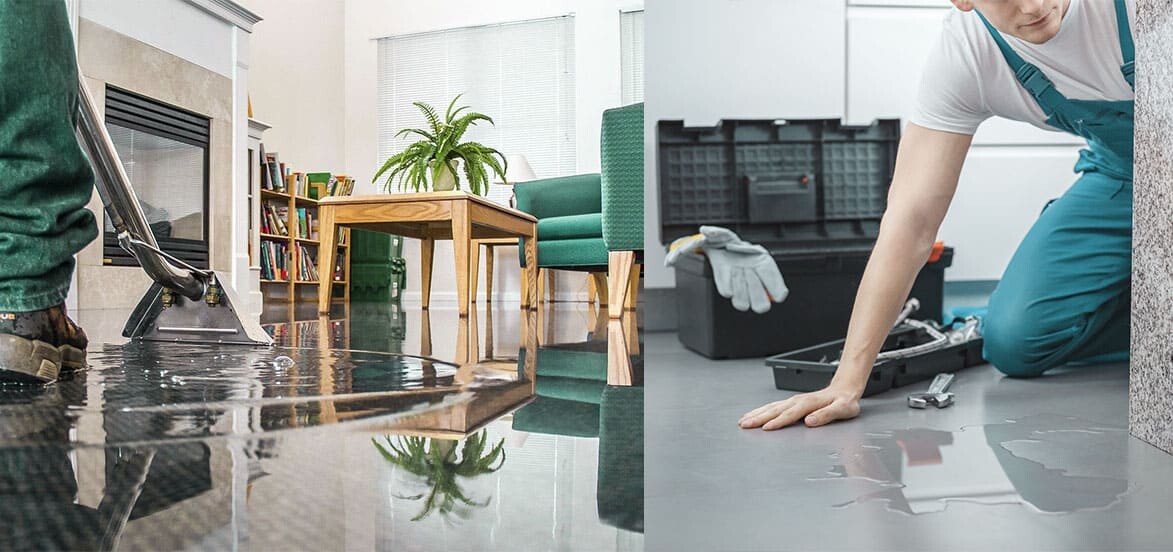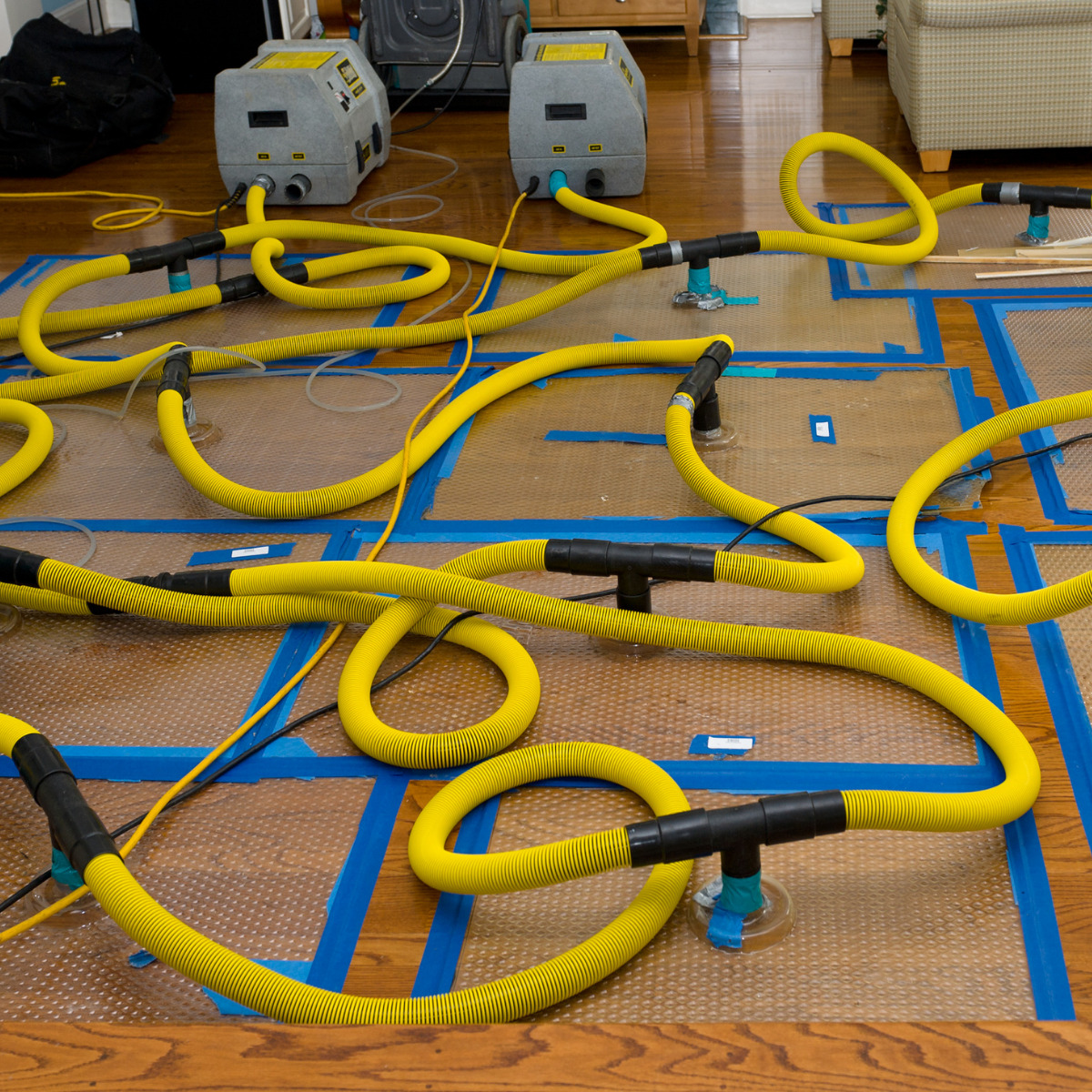The essential homeowner’s checklist for Water Damage Restoration
Wiki Article
Water Damage Restoration 101: Recognizing the Process and Cost
Water damage can strike all of a sudden, leaving property owners in a state of confusion. Comprehending the repair procedure is crucial for reliable recovery. From reviewing the damage to selecting the best service provider, each step impacts the general result and cost. Factors such as the kind of water damage and necessity additionally play a significant duty. What are the certain methods used in reconstruction, and exactly how can one prepare for potential expenditures?Types of Water Damage

Preliminary Analysis and Examination

Water Extraction Techniques
Complying with the first assessment, reliable water extraction methods are utilized to reduce damage and protect against more issues. These techniques entail making use of specific devices such as completely submersible pumps and industrial-grade vacuum cleaners - Mold Remediation After Water Damage. The choice of technique depends on the volume of water present and the sort of products impacted. For standing water, completely submersible pumps are usually made use of for fast removal, while vacuums are excellent for extracting water from rugs and furniture. In addition, advanced techniques like water extraction floor coverings may be employed for hard-to-reach locations - Flood Cleanup Services. The goal is to get rid of as much water as possible, reducing the potential for mold and mildew development and structural damage. Motivate and reliable water extraction is necessary in the general water damage restoration procedureDrying and Dehumidification Process
As soon as the water extraction is complete, the drying and dehumidification procedure comes to be crucial to recovering the damaged area. This phase commonly utilizes industrial-grade dehumidifiers and air movers to properly lower dampness levels. The dehumidifiers attract in wet air, getting rid of excess moisture, while air moving companies circulate air to speed up evaporation. Monitoring tools is frequently used to track humidity and temperature level levels, guaranteeing excellent drying conditions. The period of this process can differ depending upon the level of the water damage and environmental variables. It is crucial to thoroughly dry all influenced products, including wall surfaces, flooring, and furnishings, to avoid mold growth and architectural damage. Correct implementation of this action is critical for a successful repair result.Cleaning and Sanitizing Affected Locations
When the drying procedure is full, a complete preliminary assessment and examination of impacted areas is crucial to identify contamination degrees. Effective cleansing strategies and ideal items must then be used to get rid of particles and spots. Ultimately, sanitization and sanitation techniques are necessary to assure that hazardous virus are eliminated, bring back the room to a safe problemFirst Evaluation and Examination
Prior to beginning any type of reconstruction initiatives, a detailed initial evaluation and examination of the affected areas are crucial for reliable cleaning and disinfecting. This process involves recognizing the extent of water damage, identifying the resource of the water intrusion, and examining the materials influenced. Examiners typically try to find indications of mold and mildew development, structural stability issues, and damaged possessions. The evaluation additionally consists of inspecting wetness levels using specialized devices to ensure no concealed water pockets remain, as these can lead to additional problems. Documenting the findings is vital for intending the following action in the repair procedure. A thorough preliminary assessment makes it possible for repair experts to devise a targeted approach for effective cleansing and sanitizing, ultimately reducing damage and health risks.Cleaning Up Techniques and Products
Effective cleansing and sterilizing of water-damaged areas call for a range of methods and products tailored to the particular materials impacted. For permeable surface areas like drywall and carpeting, removal techniques are essential to get rid of excess wetness, followed by deep cleaning with specialized cleaning agents. Non-porous products such as ceramic tile or steel can be cleansed using commercial-grade cleaners that efficiently eliminate pollutants. Heavy steam cleansing is an additional reliable strategy, specifically for carpetings and furniture, as it makes use of high temperatures to get rid of bacteria and mold (Water Damage Restoration). Furthermore, green items are increasingly prominent for their security and efficacy - Water Damage Restoration. Inevitably, choosing the proper cleaning methods and products not just ensures instant tidiness however also help in protecting against more damage and carcinogen connected with water breachSanitization and Disinfection Approaches
When dealing with water damage, correct sanitization and disinfection techniques are necessary to assure the security and health of the damaged environment. After preliminary cleansing, surface areas should be treated with proper disinfectants to eliminate microorganisms, mold and mildew, and bacteria that flourish in wet problems. Common methods consist of the usage of EPA-approved chemical disinfectants, which can be applied with splashing or cleaning techniques. In addition, ultraviolet (UV) light systems can efficiently sterilize locations by reducing the effects of microorganisms without rough chemicals. The selection of technique commonly relies on the kind of materials influenced and the degree of contamination. Inevitably, detailed sanitization not only brings back a safe space but likewise aids stop future health dangers connected with sticking around dampness and mold growth.
Repairs and Restoration Options
Examining the damage brought on by water exposure is crucial for determining the suitable fixings and remediation alternatives. Home owners might encounter numerous concerns, consisting of harmed drywall, deformed floor covering, and endangered structural components. Relying on the extent of the damage, repairs may entail replacing sections of drywall, setting up new flooring, or reinforcing structural beam of lights. In situations of serious damage, full substitute of damaged materials might be needed. In addition, specialist conservators frequently suggest making use of wetness meters to evaluate surprise dampness degrees before picking the most effective program of action. It is very important to act promptly to avoid mold growth and more deterioration. Picking the appropriate choices not just recovers the property yet likewise guarantees lasting security and capability.Aspects Influencing Restoration Costs

The extent of water damage straight impacts the reconstruction sets you back home owners can anticipate to incur. Elements such as the resource of the water, the period of direct exposure, and the afflicted products greatly influence pricing. For example, clean water damage from a busted pipeline is generally much less expensive to restore contrasted to damage brought on by sewer. Furthermore, the degree of contamination dictates the requirement for specialized cleansing and disposal services, even more boosting expenditures. Geographical location likewise plays a function, as regional labor rates and schedule of repair solutions can differ. Finally, the seriousness of the reaction impacts more helpful hints expenses; quicker treatments normally cause reduce general costs by protecting against further damage. Comprehending these elements is vital for property owners when approximating repair prices.
The three primary types of water damage are classified based on contamination degrees: clean water, gray water, and black water. A comprehensive preliminary evaluation and inspection are important steps in the water damage repair process. For standing water, completely submersible pumps are commonly used for rapid removal, while vacuum cleaners are ideal for drawing out water from carpetings and upholstery. The extent of water damage directly influences the restoration sets you back house owners can anticipate to sustain. Clean water damage from a damaged pipeline is normally less pricey to bring back compared to damage caused by sewer.
Report this wiki page